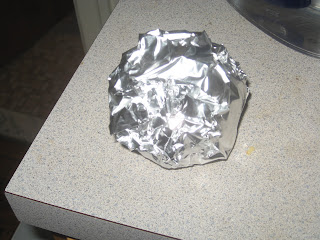As a teenager, I fell for Helen Fielding's "Bridget Jones' Diary" as my first view into modern adult-hood: the wit, sarcasm, sex, British accents, and a completely lovable, flawed heroine fighting and surviving her way through her 30s imprinted on my brain as a tale of adult hood being simultaneously everything and nothing that it's supposed to be.
In addition to her men, family, and work-related woes, Bridget drinks copious amounts of alcohol throughout the book. I had heard of most of the beverages before, but "Pimms Cup" sounded emblematically English. After a little research, I discovered I was correct: completely British in style and origin, Pimm's is a gin-based tonic originally produced to aid digestion by British gent James Pimm in 1823. The Pimm's No. 1 Cup is the most famous descendant of Mr. Pimm's tonic: mixed with strawberries, cucumbers, mint and a perfectly literary title, it sounded like the ultimate garden-party cocktail to sip on a steamy summer evening.
In addition to her men, family, and work-related woes, Bridget drinks copious amounts of alcohol throughout the book. I had heard of most of the beverages before, but "Pimms Cup" sounded emblematically English. After a little research, I discovered I was correct: completely British in style and origin, Pimm's is a gin-based tonic originally produced to aid digestion by British gent James Pimm in 1823. The Pimm's No. 1 Cup is the most famous descendant of Mr. Pimm's tonic: mixed with strawberries, cucumbers, mint and a perfectly literary title, it sounded like the ultimate garden-party cocktail to sip on a steamy summer evening.
Garden, yes. Tasty... not quite. More like, "garden-party-in-your-mouth-without-the-party." Strong cucumbers had an acidity and bite that I associate with pickles, and while cucumbers and strawberries are an intriguing taste-combination, pickles and strawberries go past "intriguing" to just plain "weird." Good idea, in essence. In practicality, however, the pickle-mint-strawberry combination leaves most readers, let alone drinkers, puckering their lips and wincing in taste-anticipation.
This was not my first experience with literary-drinking-gone-wrong. Several years ago, visiting Venice, I stopped in to Harry's Bar, a spot haunted by Ernest Hemingway many moons previous. He'd sat in Harry's, ordered a martini, and never having tasted a martini, I gave myself up to the romanticism of the drink and the spot. 18 euros and two sips later, I had my answer: martinis were extremely alcoholic and not very tasty to my wine and fruity cocktail loving palate. Another romanticized drinking dream dashed. On the rocks.
Heed, therefore, my cautionary tale: imbibe the words that intoxicate you, but be wary of sipping like the characters themselves!
This was not my first experience with literary-drinking-gone-wrong. Several years ago, visiting Venice, I stopped in to Harry's Bar, a spot haunted by Ernest Hemingway many moons previous. He'd sat in Harry's, ordered a martini, and never having tasted a martini, I gave myself up to the romanticism of the drink and the spot. 18 euros and two sips later, I had my answer: martinis were extremely alcoholic and not very tasty to my wine and fruity cocktail loving palate. Another romanticized drinking dream dashed. On the rocks.
Heed, therefore, my cautionary tale: imbibe the words that intoxicate you, but be wary of sipping like the characters themselves!



















